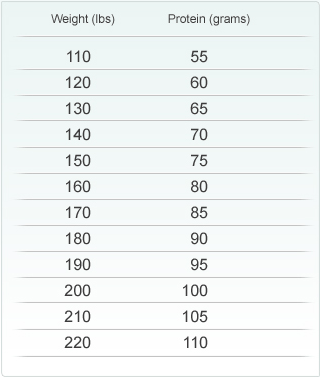Did your New Year’s resolutions include a vow to “eat right”? Many of us make that promise to ourselves in January, but by about March we find our old eating habits sneaking back up on us. Maybe you tried to tackle too much – or maybe you hadn’t really thought about what ‘eating right’ really means. Eating right involves more than just making the right food choices – it’s also about eating the right foods at the right time. So here are seven tips to help you to ‘eat right.’
Eat right when you get up. You don’t need to eat immediately upon awakening, but it’s really important to eat in the morning. Those who eat breakfast regularly are better able to control their weight, while breakfast skippers are likely to over-compensate and eat too much at lunch. If you can’t face much in the morning, try a bowl of oatmeal with a bit of protein powder stirred in, some fresh fruit with a scoop of cottage cheese or yogurt, or a protein shake made with protein powder, milk and fruit.
Eat right before you grocery shop. If you do your shopping on an empty stomach, you’ll be like a kid in a candy store – everything will look good to you. Grab a protein bar, a piece of fruit or a handful of nuts before you go out the door so you’ll be less tempted. And make a list – and do your best to stick to it.
Eat right when it comes to fats. We need small amounts of fat in the diet, but most of us eat too much. And, some fats – like the ones naturally present in fish, tree nuts, olives and avocados – are healthier than others. Healthy fats add flavor, so add avocado or nuts to your salad, or a dab of flavorful olive oil to steamed veggies.
Eat right before you work out. You need to fuel up before your exercise – especially if you work out first thing in the morning. If you don’t have much time to eat beforehand, easy-to-digest foods like smoothies, soups or yogurt do the trick. If you have a few hours to digest before you head out, have a regular meal with plenty of healthy carbs – whole grain breads, brown rice, pasta, fruits and veggies – to keep you going strong.
Eat right after you exercise. After a good workout, your body might be low on fuel, so try to eat something within 30-45 minutes after you finish your exercise. Your muscles are looking to fruits, vegetables and whole grains to help replenish their stock of carbohydrates – and a shot of protein to help them recover.
Eat right when you eat out. We eat so many meals out these days that dining out isn’t the special occasion it used to be. Resist the urge to splurge when you’re out. If you’re trying to cut your calories, split an entrée with a friend and order an extra salad. Or, skip the starchy sides and double up on veggies. Ask for dressings and sauces on the side so you can control how much you eat.
Eat right at night. A lot of people eat lightly or skip meals during the day, only to eat huge amounts of calories between dinner and bedtime. But when you do most of your eating at night, your brain and muscles don’t get the fuel they need for your daily physical and mental activities. Instead, distribute your calories over fairly evenly over your meals and snacks. If after-dinner snacking is piling on the pounds, try brushing your teeth right after dinner – it’s one of the best ways to signal that you’re done eating for the day.
Written by Susan Bowerman, MS, RD, CSSD. Susan is a paid consultant for Herbalife.
*Herbalife markets products that include protein shakes and snacks, sports and fitness drinks.






